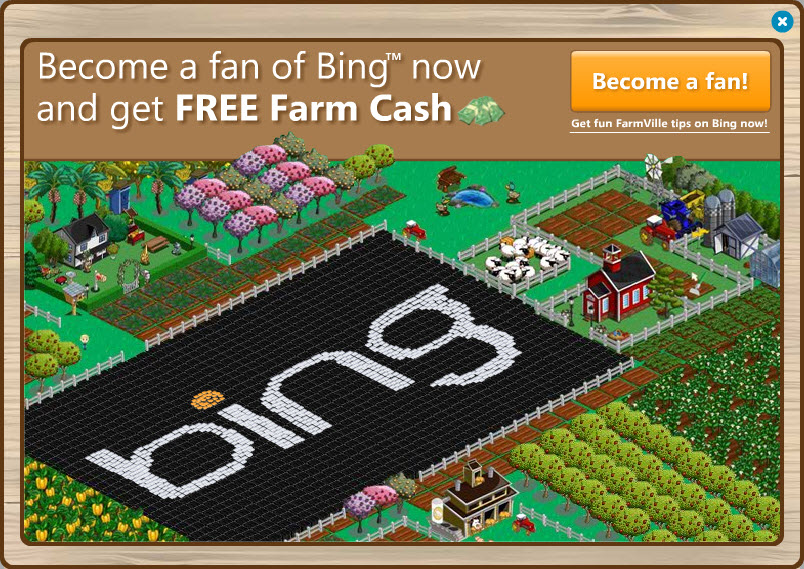What matters?[/b]
· These games are being solemnized as a way to integrate the target micro-groups to indulge in e-get-togethers (sounds cheesy? well it is!). If we take poker for example , it has a Table , and people buy in a chair ; then you can even pass drinks, smokes , goodies to show people that you are an E-billionaire.
· The game in itself is not as important as the “getting together” part. The chat-box at the side , provides users a medium to rant out ; adding a realistic feeling to something that wold have been bland otherwise. It is always about the people and their interactions in these games , nothing more-nothing less.
· In these games you can have a separate Friend/buddy-list. Someone you may not want on your official Facebook page(for plausible reasons) but enjoy conversations in-game , while playing. This diversifies the option the user has and was a positive move.
Strategic Tie-ups in Advertising[/i][/b]:
Bing-is Microsoft’s supposed nemesis to Google ; but it didn’t cause any Tsunami’s in the search engine sector. To lure in some users; they started a campaign within Farmville , in which you could earn points by clicking on the Bing-logo , & liking it on Facebook. As driven the habitual players are , they jumped at every opportunity to earn a few extra points. The Result ?

Well Bing managed to get about 400,000 people to like it on Facebook and surprisingly 70 % of them returned to the site at least one time in the succeeding observational period.
How to branch out ?
1. Endorsing custom branded items that give updates/power ups to your game-character/life.
2. The transferability or the restriction of it on some items can make their demands go up , similar to how Limited edition stuff –works (note-they are not at all limited if they are in stores right….ridiculous , and we fall for it every time.)
3. Hashing up can also be used in case of the aforementioned strategic tie-ups.
For Part 1 click here :www.managementparadise.com/article.php
